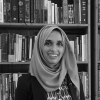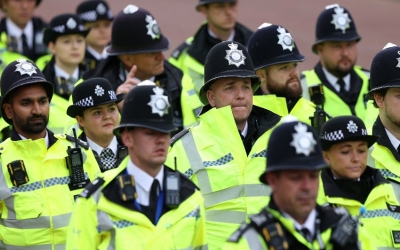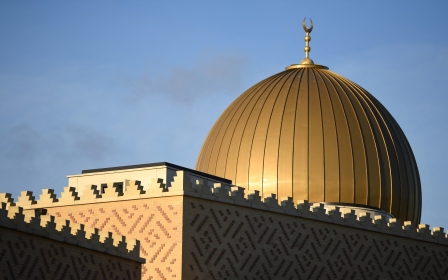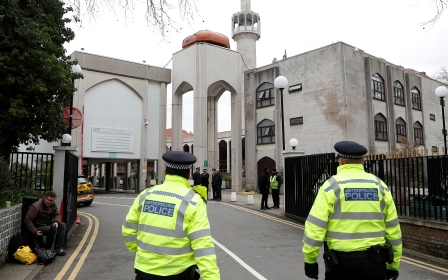Why the prayer ban verdict signals a grim future for UK Muslims
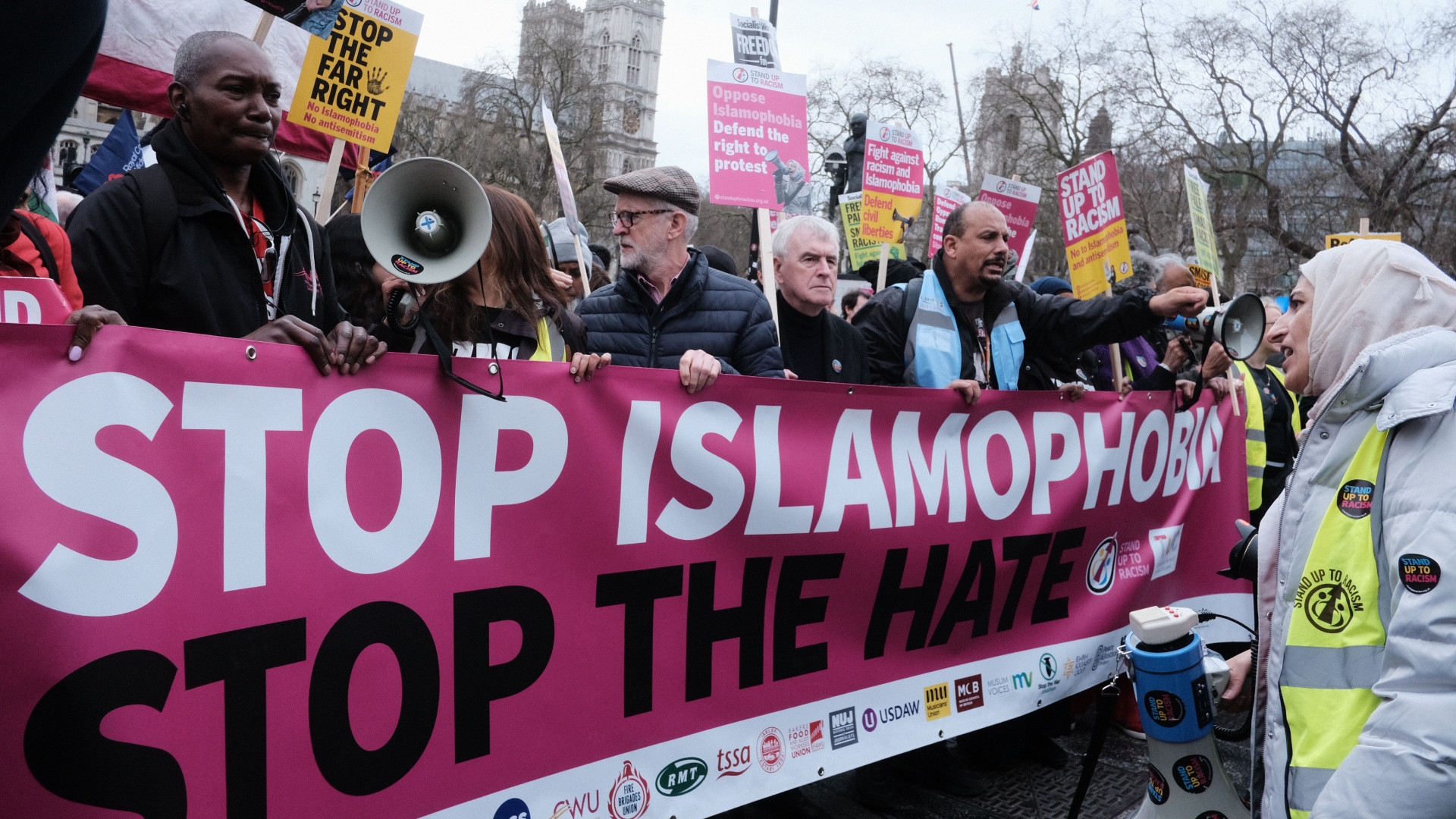
Last month, when a Muslim pupil who wanted to pray at a school in northwest London during her lunch break was prohibited from doing so, she and her family legally challenged the school's prayer policy - and lost.
After a two-day hearing, a high court judge upheld the school's prayer ban. The judge ruled that the ban did not interfere with a pupil's right to practice religious freedom freely and that the ban was justified because prayer conflicted with the school's ethos.
The Michaela school verdict has generated a barrage of reactions. Opponents have pointed out that the prayer ban fails to uphold fundamental human rights enshrined in domestic and international law and that it sets a "dangerous precedent" for both religious freedom and inclusivity in UK schools and beyond.
Many have further pointed out that the prayer ban is based on the untrue claim that UK schools are secular when they are, in fact, "obliged to provide a daily opportunity for communal worship".
What has not yet been explicitly pointed out is the proverbial elephant in the room: the Michaela school verdict predicts a grim future of repression of "Muslimness" in UK schools under the new Prevent programme.
New MEE newsletter: Jerusalem Dispatch
Sign up to get the latest insights and analysis on Israel-Palestine, alongside Turkey Unpacked and other MEE newsletters
'Islamist extremism'
"Islamist extremism" has become the new target of Prevent. Following the recommendations of the Shawcross review, a new version of Prevent, which is part of the UK's counter-terrorism strategy, has been in effect since 2023.
Seeking the same objectives of targeting the "ideological causes of terrorism" as its previous policy iterations, the 2023 version of the Prevent policy takes "Islamist terrorism" as the "primary domestic terrorist threat" to the UK and its interests.
Prevent 2023 has effectively embedded and institutionalised an alarmist conspiracy theory into counter-extremism policy and practice in the UK
For Prevent, Islamism is an ideology of extremism. Islamism yields terrorism. Islamists are extremists. Islamists are potential terrorists.
But Islamism had been on the political radar in the UK well before Prevent incorporated it. Indeed, combating Islamism has long been the pet project of certain actors in the political establishment.
Micheal Gove, a senior cabinet member, has depicted Islamism as a political project that seeks to supplant British values with so-called Islamic values. The far-right commentator Douglas Murray described Islamism as the force that has put Europe on a trajectory towards becoming Eurabia, or a colonised outpost and subjugated vassal state of the Islamic world.
Prevent 2023 has effectively embedded and institutionalised an alarmist conspiracy theory into counter-extremism policy and practice in the UK.
However, for many human rights and anti-racist advocates, the new focus of Prevent raised questions about what counts as Islamist extremism. The Michaela school verdict answers that question.
Being Muslim
The Michaela school prayer contest has been described as a struggle between Islamist extremism and UK values. In other words, it is an ideological battle against Islamism.
Telegraph columnist Nick Timothy described Muslim efforts to challenge the school prayer ban as the kind of Islamist extremism that has turned schools and other public institutions into a "battleground" where the "Islamisation" of public spaces is fought.
For Timothy, Muslim pupils who want to pray at school embody political Islam.
Using similar language, former Home Secretary Suella Braverman wrote a post on X that likened the Muslim challenge to Michaela's prayer ban to "attacks and battles" and urged her followers to see the court ruling as a "victory" and "a turning point for the country". "We need more Michaela's!" she added.
For Braverman, Muslim pupils who want to pray are foot soldiers of Islamism. Stopping Muslim prayer is a victory against Islamism. The prayer ban has turned the tide against an Islamist project supposedly underway. UK schools should take heed and ban Muslim prayer or take their Muslim pupils to court if they challenge the ban on prayer.
What both Timothy and Braverman are essentially saying is that when Muslims seek accommodation for their faith-based practices, they are Islamists acting in the name of political Islam.
Timothy and Braverman are hardly the first to equate Muslim requests for multicultural accommodation of Muslim religious practice with Islamism.
The neo-conservative think tank Policy Exchange has long cried foul of Muslim political mobilisation, decrying Muslim efforts to be able to publicly practice Islam as attempts to create a society that is in strict conformity with religious doctrine - the so-called objectives of political Islam.
Indeed, when Muslim governors and teachers in Birmingham schools pushed for and accommodated Muslim practices such as prayer, Friday congregation, gender-segregated physical education, and so forth, they were accused of being part of a Trojan Horse operation, a stealth operation to supplant British values with so-called extremist values - again, the so-called objectives of political Islam.
What the Michaela prayer controversy crucially tells us is how Islamist extremism will be interpreted under the new Prevent: as Muslim activism that seeks the right to practice faith in everyday life.
Repressing 'Muslimness'
Legally enshrining the view that Muslim requests for faith-based accommodation are not legitimate political activism but the political expression of a will to overthrow British values, the Michaela prayer verdict portends a grim future for practising British Muslims under Prevent 2023.
There are more and more cases of children being referred to Prevent for nothing more than being Muslim
More importantly, it spells a dark future in which Muslim mobilisation to practice faith in schools is seen as an expression of political Islam.
UK schools have dug deep into the trenches of the War on Terror in British classrooms.
For the year ending in March 2023, schools yielded the highest number of Prevent referrals (2,684 referrals out of 6,817) out of all the public sector institutions, contributing to the fact that nearly half (46%) of Prevent referrals involved youth between the ages of 11 and 15.
Under Prevent, schools have securitised Islam and "Muslimness".
In recent years, we have seen more and more cases of children being referred to Prevent for nothing more than being Muslim: a 10-year-old girl decides to wear the hijab, an eight-year-old boy has memorised parts of the Quran, or a 16-year-old goes to perform a pilgrimage in Mecca.
Schools teach Muslim pupils that being Muslim is a problem. An A-level pupil is interrogated about his views on Islam and the Islamic State. Islam is taught in a religious-education class through the lens of extremism.
Schools teach Muslim pupils that Muslim life does not matter. Muslim pupils showing Palestine solidarity have been either referred or threatened with a Prevent referral. Or they have faced a full arsenal of disciplinary techniques such as detentions, suspensions, exclusions, police involvement, penalty points, isolation, bans and physical interventions.
While being Muslim in school will continue to be equated with extremism, after Michaela, any mobilisation by pupils to be publicly Muslim will be interpreted as an Islamist activity.
In this Prevent context, the Michaela prayer verdict suggests a new trajectory in the securitisation of Islam and "Muslimness" in schools in the coming years.
The views expressed in this article belong to the author and do not necessarily reflect the editorial policy of Middle East Eye.
Middle East Eye delivers independent and unrivalled coverage and analysis of the Middle East, North Africa and beyond. To learn more about republishing this content and the associated fees, please fill out this form. More about MEE can be found here.


